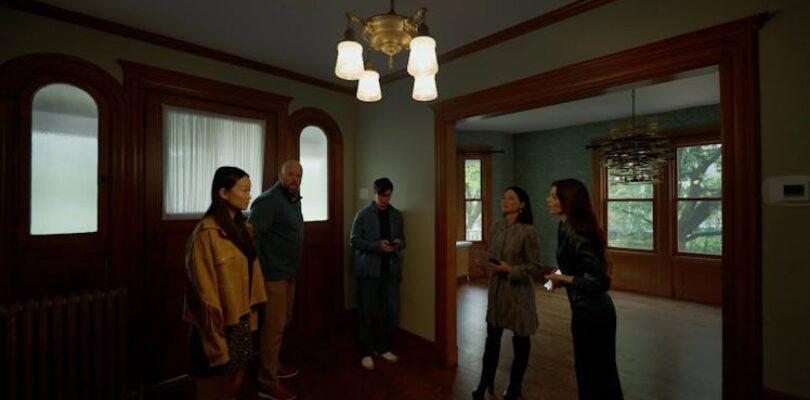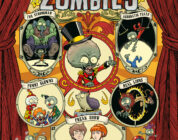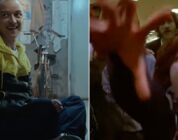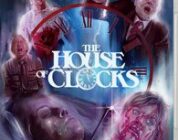Ghosts have been a perpetual fixture of human artistry for generations, one of our oldest existential curiosities — we’ve used them as a tool to wrestle with mortality in books, live theatre, and, (since 1896’s The Haunted Castle) movies as well. They’re perhaps the original on-screen horror archetype, predating even Dracula. Their ubiquity speaks to the power that genre cinema has in helping us understand not just mortality, but trauma, and regret, and historical bloodshed as well.
For as long as they’ve haunted the collective cinematic consciousness, they’ve also undergone changes that reflect our increasingly cynical appetites. Gone are the hokey, spectral-white, mostly peaceful apparitions from the Golden Age of Hollywood, replaced by the overtly evil, often gruesome-looking ghouls made popular by Paranormal Activity and The Conjuring. Modern ghost stories resemble their classic Gothic origins increasingly little, which is why Steven Soderbergh’s recent Presence feels so fresh: it marries a genuinely unique visual style with the atmosphere of a traditional haunting.
While the initial setup is quite simple (a relatively well-off, seemingly picture–perfect upper class family moves into a new house in the suburbs that turns out to be haunted), the film’s divisive visual approach is anything but. Known for constantly playing around with different formats for the sake of convenience, or even to challenge how audiences approach a story (shooting Unsane and High Flying Bird on iPhones, for instance), Soderbergh shot Presence himself entirely from a 1st person POV, specifically that of the titular ghost. Some folks were naturally off-put by the uncanny, disorienting camera movement, but in the context of the genre it’s an inspired decision. Never before has a movie committed so fully to immersing you in the experience of existing in a hypothetical afterlife, but there’s also a profound sense of isolation evoked by the aesthetic style. Even before the movie reveals exactly who this presence is (or was), the visual storytelling conveys such a deep feeling of sorrow, and of being on the outside looking in — curious and wistful, and perhaps envious, of the life it observes in the Payne family.
Part of how the film resurrects the classical nature of a ghost story is truthfully in its focus on the (suburban) Gothic domestic drama unfolding inside the house. Like the emotionally and psychologically destructive tragedies of Poe’s House of Usher and Shirley Jackson’s original Hill House, the paranormal in Presence functions like a house of mirrors, turning familial trauma into a frightening, inexplicable abstraction. Grief becomes an unrecognizable and warped reflection of human yearning and sadness. But instead of reflecting the social anxieties of the 1830s, or even the 1950s, here the supernatural points a flashlight at the skeletons in the closets of perfectionist 21st century suburbanites, their socioeconomic appetites, and their fatalist imperfections.
A haunting might be worth it for this house in this economy.
Neon
Soderbergh’s specter observes silently and tries to understand its reason for existing, a goal it ironically shares with the living. Just like it, audiences watch invisibly and scrutinize the immediate flaws in this idealistic fresh start and the hollow victory of “upward mobility.” Rebekah’s (Lucy Liu) heavily implied white-collar financial fraud, the Oedipal undertones of her fawning relationship with her son Tyler (Eddy Maday), how that toxic dynamic nurtures the confidence with which he belittles his grieving sister Chloe (Callina Liang), and how the entire collapsing sandcastle is driving meek father/husband Chris (Chris Sullivan) maybe further and further away from them — all of it is passively witnessed by a force desperately trying to figure out how to make its influence active, not to terrorize, but perhaps for something else.
There’s such a caustic bite to the way that these characters interact with each other, very specifically in regards to how they react to emotional or spiritual sincerity. Whether it’s the stone-faced stubbornness with which Rebekah ignores Chris’ obvious feelings of emotional neglect (watching Liu and Sullivan perform marital crisis here is some of the best acting of the year), or the conscience-less teenage cruelty Tyler deploys in the face of his sister’s very real emotional turmoil and her vague clairvoyant sensitivity. But it’s not as if the problem is exclusively their own, there’s a lack of empathy to the world at large that bleeds into the house from other places as well.
One of cinema’s fastest inductees into the hall of Most Uncomfortable Boy Moms.
Neon
The financial and social circles that the family navigate (the relative privilege of the upper-middle class, competitive private schools and the wildly repressed and rebellious adolescent communities they inevitably cultivate, and the broad emotional disaffection experienced by many high school boys today) feel rotten, shredded by a culture where greed and consumerism and schadenfreude have consumed a reverence for life and mortality and the thought of experiencing either sincerely. But by the time their experience with their phantom is over, the Payne family’s lives have been radically upended, acutely refocused on what truly matters by a harrowing and inexplicable experience that leaves them (and will leave you) emotionally shell-shocked. Presence works because at its best, its bold visual approach and its Gothic traditions reminds us that more than anything, a good ghost story should remind us about the fragility of life itself and how much every moment matters.





